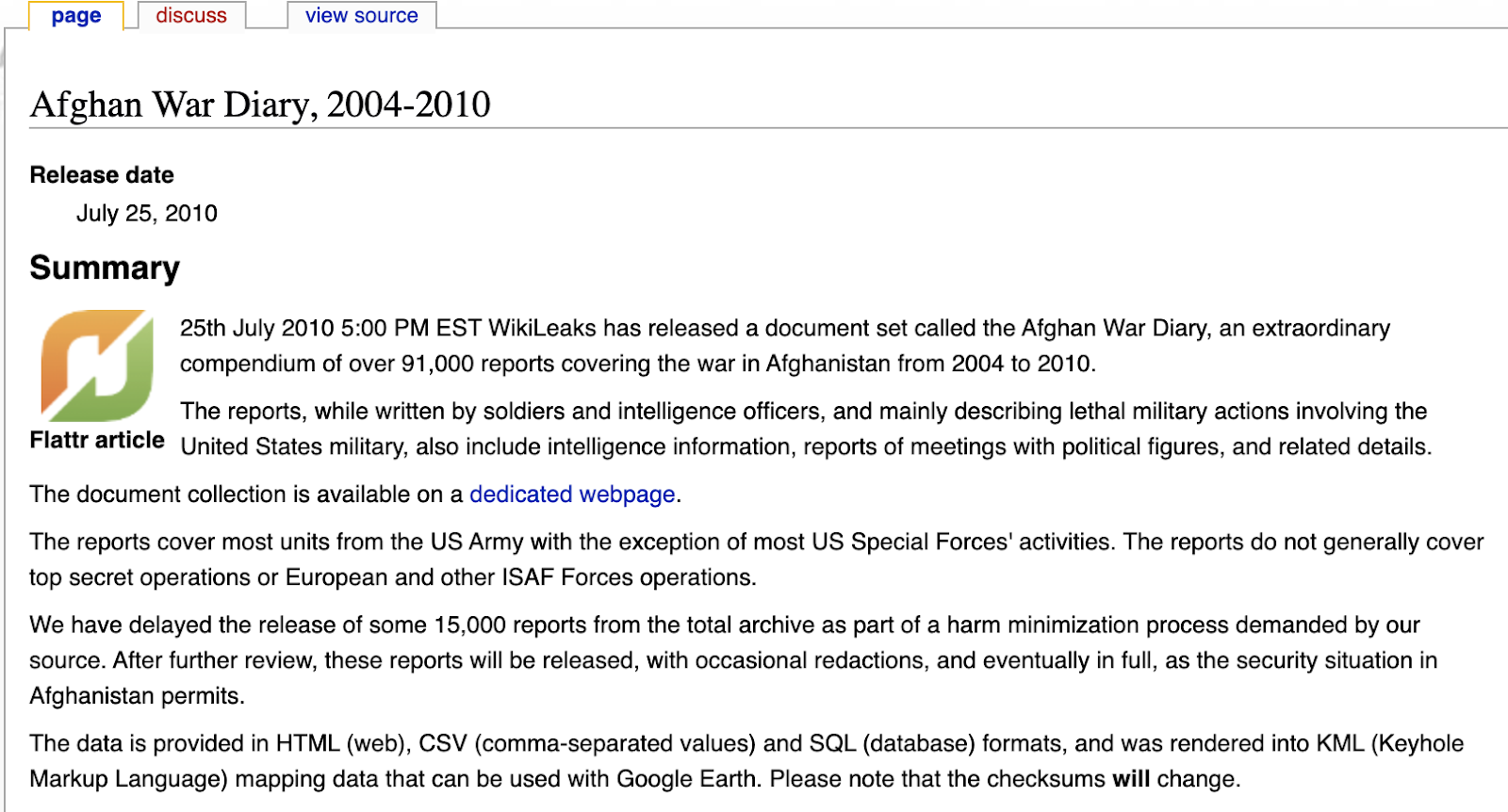Last updated:
 Why Trust Cryptonews
Why Trust Cryptonews
Ad Disclosure
We believe in full transparency with our readers. Some of our content includes affiliate links, and we may earn a commission through these partnerships.

Julian Assange’s monumental 2010 release of the Afghan War Logs marked a turning point in transparency, revealing classified details of US military operations during the Afghanistan War.
According to a recent report by The Block, a new initiative now aims to ensure these records remain permanently accessible by inscribing them onto the Bitcoin blockchain via Project Spartacus.
This ambitious effort involves encoding 76,911 files from the Afghan War Diary into Bitcoin’s decentralized ledger, utilizing the Ordinals protocol to safeguard the data against censorship or loss.
Assange’s supporters and family spearheaded the move as part of WikiLeaks’ mission and its long-standing relationship with Bitcoin as a tool for resilience.
WikiLeaks’ Afghan War Logs: How Can Bitcoin Blockchain Guarantee Immortability?

The Afghan War Logs, first released by WikiLeaks in 2010, provide a detailed account of military operations between 2004 and 2010.
They expose troubling aspects of the war, including civilian casualties and controversial interrogation practices. Despite public availability, there remains a persistent risk of suppression or erasure due to the politically sensitive nature of the content. To address this, Project Spartacus will inscribe the logs onto the Bitcoin blockchain using OrdinalsBot to ensure permanence.
Unlike traditional digital storage, which relies on centralized servers, Bitcoin’s decentralized network distributes data across thousands of nodes globally, making it nearly impossible to alter or delete.
Gabriel Shipton, Assange’s brother and chair of the Assange Campaign, remarked: “This information should last forever.”
The minting process, set to begin on December 12, 2024, will be free for participants via ProjectSpartacus.org and later continue on the OrdinalsBot marketplace, Trio.
Given the volume of data, the mint is expected to span multiple Bitcoin blocks, creating one of the most extensive and technically complex blockchain projects to date.
A Symbol of Resistance and Legacy
Bitcoin played a crucial role in supporting WikiLeaks during its financial blockade, during which major payment processors denied service to the organization.
Donations in BTC kept WikiLeaks operational and proved decentralized systems’ resilience in the face of state-level suppression.
Assange’s early engagement with Bitcoin even drew attention from Satoshi Nakamoto, the cryptocurrency’s enigmatic creator. In 2010, Nakamoto expressed concern over WikiLeaks’ use of Bitcoin, fearing it could bring unwelcome scrutiny to the nascent technology.
Nakamoto wrote in a Bitcointalk forum post: “WikiLeaks has kicked the hornet’s nest, and the swarm is headed towards us.”
Despite this initial hesitancy, Bitcoin became a lifeline for WikiLeaks as a tool for censorship-resistant currency.
A “Forever Iconic” Endeavor
Using the Ordinals protocol makes it easy and the best option to permanently archive the logs. Ordinals allow data to be inscribed onto individual satoshis—the smallest unit of Bitcoin—creating immutable records directly tied to the network’s ledger.
Toby Lewis, founder of OrdinalsBot, described the project as a “forever iconic” endeavor. However, he acknowledged the challenges posed by the scale of the mint, which involves tens of thousands of files.
Lewis noted: “This isn’t a 10K collection.” He added that the infrastructure is designed for large-scale mints but still anticipates some delays.
While the initiative is not intended to raise funds for Assange—who continues to seek a full pardon from U.S. President Joe Biden—it provides a way for supporters to engage with his legacy.
Shipton emphasized that the project serves as a reminder of Bitcoin’s original purpose, to be a weapon against systemic constraints. “It’s one of the strengths of Bitcoin — being able to withstand resist state-level attacks and keep publishing.”


















